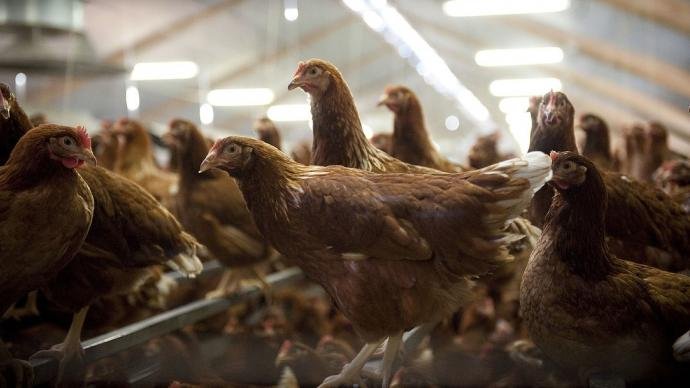HQ Team
December 6, 2023: France has upgraded its level of bird flu risk to ‘high’ from ‘moderate’ to ensure better protection and ordered poultry farms to close or enclose the birds with nets in farmyards and zoos.
The first outbreak in livestock farming of highly pathogenic avian influenza (HPAI) was detected in Morbihan, northwest of France, at the end of November.
“While the infection dynamic in Europe continues, the Ministry of Agriculture and Food Sovereignty decided to raise to its maximum the level of epizootic risk about highly pathogenic avian influenza,” according to a government statement.
“Preventive measures are being strengthened to protect poultry farms.”
“This decision, one week after an initial increase in the level of risk, ensures better protection of farms in the face of the threat represented by the strong circulation of the virus in migratory wildlife.
Closure, net protection
The government has ordered the closure or protection by nets of birds kept in establishments with fewer than 50 poultry or captive birds and farm owners were told to “shelter and protect” feeding and watering of birds in establishments keeping more than 50 birds.
It has imposed mandatory equipment of vehicles intended for the transport of water flies over three days old with tarpaulins and prohibited gatherings of poultry and captive birds.
A ban on racing pigeon competitions, restrictions on the transport of calling birds and a ban on the release of game birds of the Anatidae family have also been imposed.
In areas of high areas of diffusion (ZRD), or with a high density of poultry farms, virological screening during movements of batches of palmipeds ready to fatten between two farms, is needed along with restricted access and disinfection of vehicles.
“These prevention measures complement the compulsory vaccination campaign launched in France on October 1 for commercial farms keeping more than 250 ducks. Surveillance, biosecurity and vaccination are complementary pillars of HPAI prevention.”
Dynamic spread
For several weeks, Europe has recorded a dynamic spread of the HPAI in migratory wild fauna — greylag geese and barnacles in particular — and in farms in Northern Europe such as Germany, Denmark, Netherlands, and Central Europe, particularly in Hungary.
These detections concern a certain number of countries (Denmark, Netherlands, Germany) located upstream of the migration routes that cross France.
Germany, Sweden and Austria have identified the virus in different species of migratory birds.
The “infection pressure” linked to migratory wildlife will therefore gradually increase in France. Four common cranes have already been confirmed infected with HPAI in the Meuse (Lake Madine) and in the Camargue in recent days, as well as a herring gull in Morbihan.
Contact with sick birds
On November 27, close to the gull found infected, a turkey farm was declared as an HPAI outbreak. All measures are being taken to manage this first outbreak in breeding in the fall of 2023.
The bird flu is most often contracted by contact with sick birds. It can also be passed from person to person. Symptoms begin within two to eight days and can seem like the common flu.
Cough, fever, sore throat, muscle aches, headache and shortness of breath may occur. Symptoms may worsen into gut and breathing issues. The disease can carry a high mortality in humans. Some antiviral drugs, if taken within two days of symptoms, may help, according to Centers for Disease Control and Prevention.
